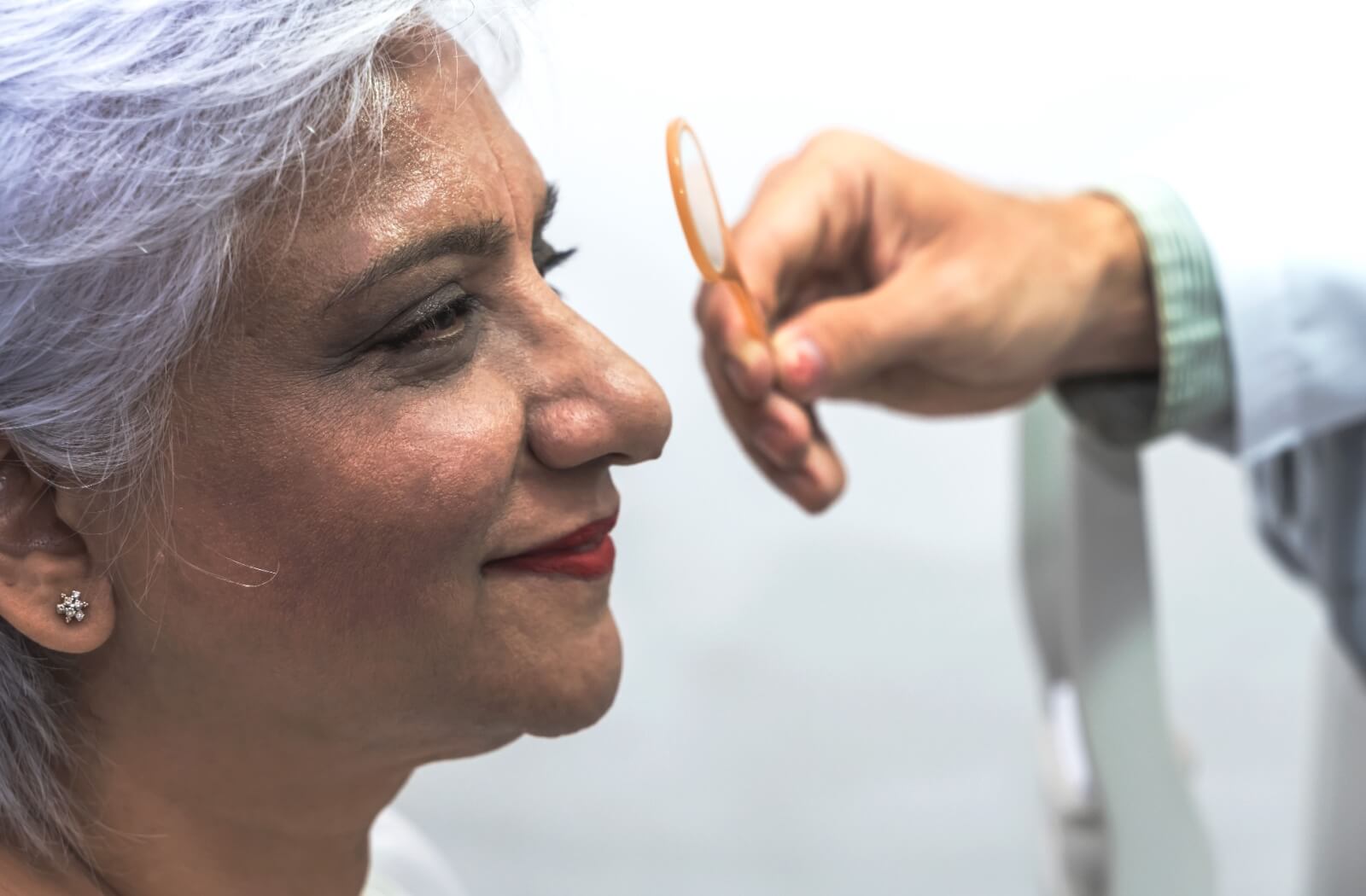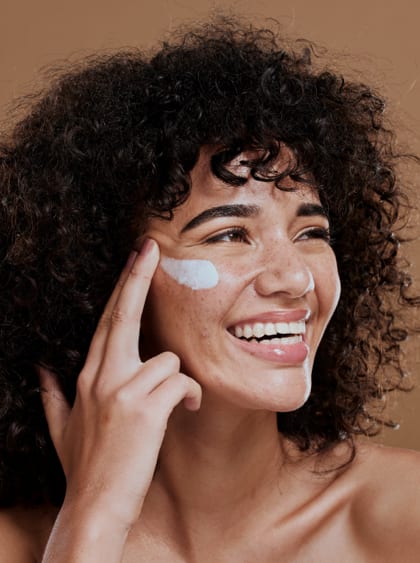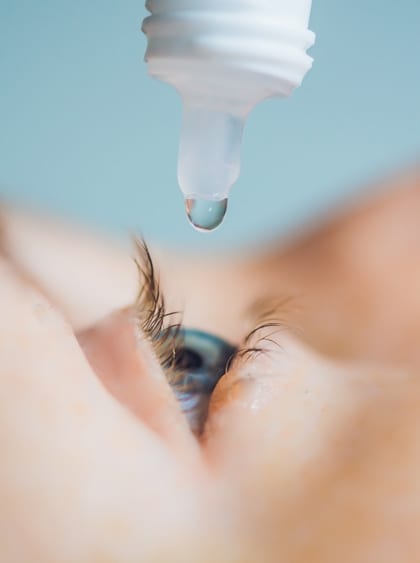In the realm of eye health, macular degeneration stands out as a prominent concern affecting millions worldwide. This degenerative condition impacts the macula, the central part of the retina responsible for sharp, central vision.
As the leading cause of vision loss in older adults, macular degeneration underscores the critical need for proactive measures to maintain and enhance vision health. Certain vitamins and minerals can play a transformative role in combating macular degeneration, including vitamins D, A, E, Zinc, Lutein, and Zeaxanthin.
MEye Health wants you and your family to feel comfortable with your sight, providing compassionate services and high-quality eye care–it all starts with an eye exam.
Understanding Macular Degeneration
Macular degeneration manifests in two forms: dry macular degeneration, characterized by the gradual breakdown of light-sensitive cells in the macula, and wet macular degeneration, marked by abnormal blood vessel growth beneath the retina.
While age remains a significant risk factor, other factors such as genetics, smoking, and diet play crucial roles in the development and progression of this condition.
The Role of Vitamins in Vision Health
In the pursuit of combating macular degeneration and promoting overall eye health, the role of vitamins cannot be overstated. Several key vitamins and nutrients have been identified for their potential to reduce the risk of macular degeneration or slow its progression. Let’s delve into some of these essential compounds:
Vitamin D
Vitamin D plays a crucial role in maintaining overall eye health by reducing inflammation and supporting proper immune function. Vitamin D may possess antioxidant properties that could help counteract oxidative stresses contributing to macular degeneration.
While some studies indicate an association between vitamin D levels and the risk of macular degeneration, it’s essential to note that healthcare professionals do not consider vitamin D as a direct treatment for this condition.
Foods rich in vitamin D include salmon, egg yolks, and fortified dairy products. Consider incorporating a daily vitamin D supplement to ensure optimal levels of this essential nutrient.
Vitamin A
Vitamin A is essential for preserving good eye health and function, aiding in keeping the eyes moist and healthy and keeping the cornea clear. Adequate dietary intake of vitamin A helps protect against certain eye diseases, such as age-related macular degeneration.
Studies show that higher blood levels of beta carotene, alpha carotene, and beta cryptoxanthin may reduce your risk of Macular Degeneration by up to 25%.
Vitamin A is abundant in foods like sweet potatoes, carrots, and leafy greens, making it easily accessible through diet or supplementation.
Vitamin E
Much like its counterpart, vitamin C, vitamin E functions as a potent antioxidant that holds the potential to mitigate the risk of developing macular degeneration. Beyond its antioxidant properties, vitamin E plays a crucial role in safeguarding the eyes by assisting in the maintenance of robust cellular structures and tissues within the ocular environment.
By combating oxidative stress and supporting the health of eye cells, vitamin E contributes to the overall protection and well-being of the eyes, making it a valuable nutrient in the realm of vision health.
Foods rich in vitamin E include almonds, spinach, avocados, sunflower seeds, olives, and broccoli.
Zinc
Zinc, an essential mineral vital for the maintenance of optimal eye health, plays a multifaceted role in supporting various eye functions. Not only does zinc aid in the efficient absorption of vitamin A, a key nutrient for vision health, but it also plays a pivotal role in activating enzymes that facilitate the healing process of ocular tissues and wounds.
In the specific context of macular degeneration, the supplementation of zinc has demonstrated promising potential benefits, potentially contributing to the preservation of macular health and function.
By incorporating zinc into one’s diet or through targeted supplementation, individuals can fortify their eye health and potentially mitigate the progression of conditions like macular degeneration, underscoring the indispensable role of this mineral in maintaining clear and healthy vision.
Lutein & Zeaxanthin
Lutein and zeaxanthin serve as powerful antioxidants crucial for eye health, protecting against free radical damage and lowering the risk of age-related macular degeneration and cataracts.
These nutrients, found in dark-green vegetables like kale, spinach, and broccoli, as well as in egg yolks, peppers, and grapes, offer additional benefits for skin health and sun protection.
If dietary intake is insufficient, supplementing with lutein and zeaxanthin can be beneficial, with recommended daily dosages of 10 mg of lutein and 2 mg of zeaxanthin.
Incorporating Vitamins into Your Diet
To harness the benefits of these vision-boosting vitamins, incorporating them into your daily diet is key. Foods rich in these vitamins include:
- Vitamin A: Carrots, sweet potatoes, spinach, and kale.
- Vitamin C: Citrus fruits, strawberries, bell peppers, and broccoli.
- Vitamin E: Almonds, sunflower seeds, and spinach.
- Zinc: Beef, poultry, dairy products, and beans.
- Lutein and Zeaxanthin: Leafy greens, eggs, and corn.
FitEyez
FitEyez are the ultimate solution for comprehensive eye care in one delicious gummy! Packed with 11 essential ocular nutrients, these gummies offer premium sourcing of natural ingredients, certified gluten-free, low in sugar, non-GMO, vegan, and preservative-free.
FitEyez uniquely supports overall eye health, maintains healthy vision, provides advanced cell protection, reduces inflammation, maximizes macular protection, and offers blue light defense.
Key Ingredients:
- Lutein and Zeaxanthin: Antioxidants supporting vision and defending against blue light.
- Astareal® Astaxanthin: Promotes dry eye comfort, relieves eye fatigue, and eases digital eye strain.
- Vitamins and Minerals: Includes Lycopene, Zinc, Copper, Vitamin E, B1, B6, B9, and B12 for optimal eye health.
Top Vitamins for Eye Health
While vitamins play a crucial role in supporting vision health and potentially mitigating the risks associated with macular degeneration, it’s important to consult with a healthcare professional before making significant dietary changes or starting any supplementation regimen. By proactively incorporating these key vitamins into your diet and lifestyle, you can take proactive steps towards enhancing your vision health and preserving the gift of sight for years to come.
Contact us now to schedule your personalized consultation and embark on a vision wellness experience like never before. Your eyes deserve the best–trust MEye Health to deliver excellence in eye care and empowerment in vision enhancement.






















